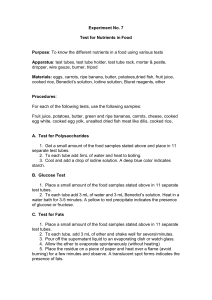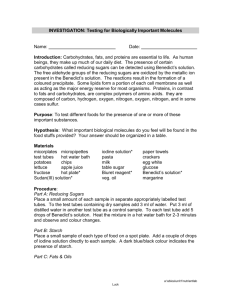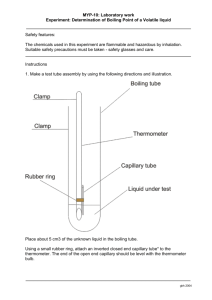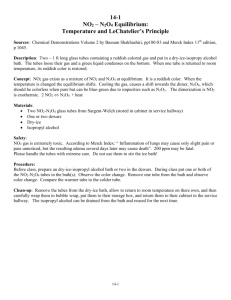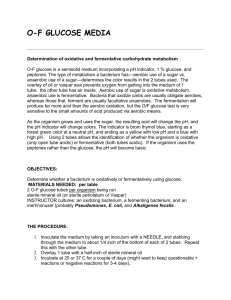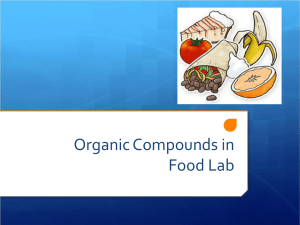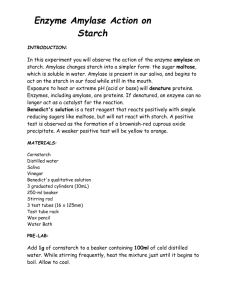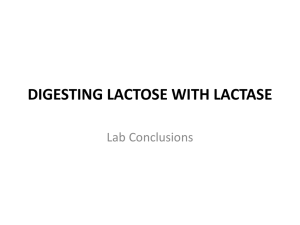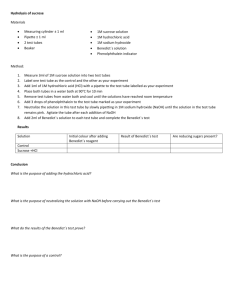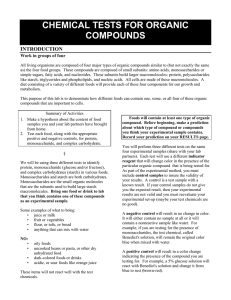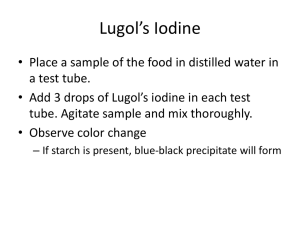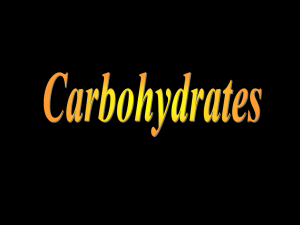To Prepare and Show the Production of Alcohol by Yeast
advertisement
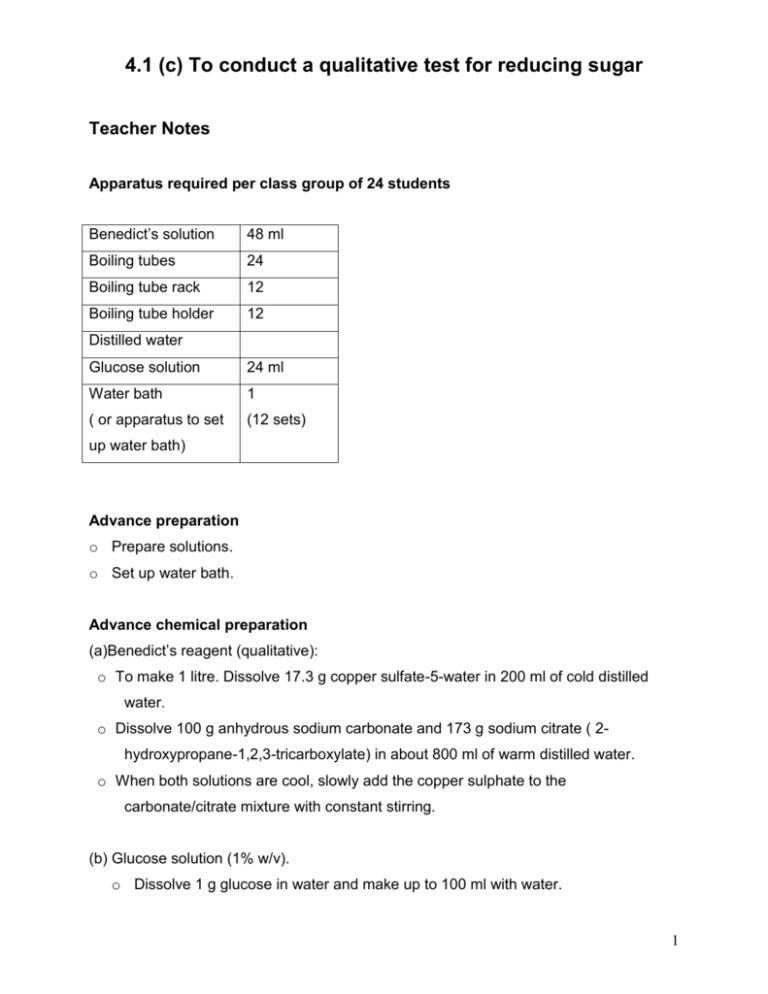
4.1 (c) To conduct a qualitative test for reducing sugar Teacher Notes Apparatus required per class group of 24 students Benedict’s solution 48 ml Boiling tubes 24 Boiling tube rack 12 Boiling tube holder 12 Distilled water Glucose solution 24 ml Water bath 1 ( or apparatus to set (12 sets) up water bath) Advance preparation o Prepare solutions. o Set up water bath. Advance chemical preparation (a)Benedict’s reagent (qualitative): o To make 1 litre. Dissolve 17.3 g copper sulfate-5-water in 200 ml of cold distilled water. o Dissolve 100 g anhydrous sodium carbonate and 173 g sodium citrate ( 2hydroxypropane-1,2,3-tricarboxylate) in about 800 ml of warm distilled water. o When both solutions are cool, slowly add the copper sulphate to the carbonate/citrate mixture with constant stirring. (b) Glucose solution (1% w/v). o Dissolve 1 g glucose in water and make up to 100 ml with water. 1 Safety precautions o For further information see MSDS Expected outcome of experiment o A positive test for a reducing sugar is a brick red colour o A negative test for a reducing sugar is a blue colour Disposal and post-experiment work o Benedict’s reagent – flush a small amount (50 g) to foul water drain. o Glucose - flush to foul water drain with water. 4.1 (c) To conduct a qualitative test for reducing sugar 2 Student Notes Apparatus required per group o 2 x boiling tubes and rack o Test tube holder o 4 ml Benedict’s solution o 1 ml glucose solution o Distilled water o Bunsen, tripod, gauze and 400 ml beaker if necessary. Assembled apparatus Method 1. Set up a hot water bath. 3 2. Label two boiling tubes ‘A’ and ‘B’. 3. Place 2 ml of the glucose solution into tube A. 4. Place 2 ml of water into tube B. This acts as the control. 5. Add 2 ml of Benedict’s reagent to each tube. 6. Swirl each tube. 7. Place both tubes in the hot water bath and heat for 5 minutes. 8. Using the test-tube holder, carefully remove both tubes from the water bath and place in the test-tube rack. 9. Record result. 10. At the end of the experiment, clean all of the equipment and replace it in its correct place. Results: Sample Initial colour Final colour A – Glucose solution B - Water Conclusion/Comment 4
